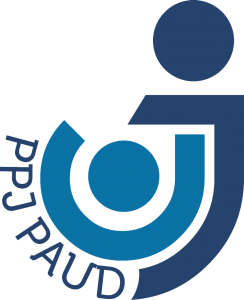Menjadi Orang Tua Kreatif bagi Anak Usia Dini di Masa New Normal
Becoming a Creative Parent for Early Childhood in the New Normal Period
DOI:
https://doi.org/10.37680/absorbent_mind.v1i1.782Keywords:
Parenting, Parents, Creative, New NormalAbstract
Learning activities organized by the school during the New Normal period were using social media assistance, such as whats app, zoom, google classroom, You Tube, Edmodo. This learning model is considered effective in breaking the chain of the spread of the corona virus. Learning and education patterns at an early age are filled with playing, running, and filled with joy in the learning process. Therefore, it takes a pattern of intense parenting and mentoring from parents to assist their children in taking online learning. Because in early childhood, it is the most important stage for their growth and development towards adult humans. This article was written using a literature study research method. The results showed that parenting patterns and mentoring can be done by parents in accompanying online learning. Among them can be done in the form of giving attention, supervision, and always coordinating with the school and other students' parents so that their children can learn independently and reflect Islamic values according to the Al-Qur'an and Hadith.
References
Albet Saragih, J. W. H. (2020). Model Asuhan Keluarga Kristen di Masa Pandemi Covid-19. Jurnal Teruna Bhakti, 03(01), 1–11.
Chen, M., & Chan, K. L. (2016). Effects of Parenting Programs on Child Maltreatment Prevention: A Meta-Analysis. Trauma, Violence, and Abuse, 17(1), 88–104. https://doi.org/10.1177/1524838014566718
Chen, T., Wu, D., Chen, H., Yan, W., Yang, D., Chen, G., Ma, K., Xu, D., Yu, H., Wang, H., Wang, T., Guo, W., Chen, J., Ding, C., Zhang, X., Huang, J., Han, M., Li, S., Luo, X., … Ning, Q. (2020). Clinical characteristics of 113 deceased patients with coronavirus disease 2019: Retrospective study. The BMJ, 368. https://doi.org/10.1136/bmj.m1091
Currie, J. (2001). Early childhood education programs. In Journal of Economic Perspectives (Vol. 15, Issue 2, pp. 213–238). https://doi.org/10.1257/jep.15.2.213
Edi Irawan, Ahmadi, Agus Prianggono, A.D. Saputro, M. S. R. (2020). YouTube Channel Development on Education: Virtual Learning Solutions during the Covid-19 Pandemic | International Journal of Advanced Science and Technology. International Journal of Advanced Science and Technology.
Fischer, K. W. (1980). A theory of cognitive development: The control and construction of hierarchies of skills. Psychological Review, 87(6), 477–531. https://doi.org/10.1037/0033-295X.87.6.477
Hasan, M. (2018). The Concept Of Lifelong Eduction in Islam. Ar Raniry : International Journal of Islamic Studies, 4(2), 257. https://doi.org/10.20859/jar.v4i2.139
Hondralis, I., & Kleinert, C. (2020). Do children influence their mothers’ decisions? Early child development and maternal employment entries after birth. Advances in Life Course Research, 100378. https://doi.org/10.1016/j.alcr.2020.100378
J Belsky. (1984). The determinants of parenting: A process model.Child Development,.
Joseline M. Santos, R. D. R. C. (2021). Technological Pedagogical content knowledge (TPACK) in action:Application of learning in the classroom by pre-service teachers (PST). Social Sciences&Humanities Open, 3, 1–8.
Keshavarz, S. (2012). Philosophy of Education in Exceptional Children According to Islam. Procedia - Social and Behavioral Sciences, 46, 2917–2921. https://doi.org/10.1016/j.sbspro.2012.05.589
Kewajiban Orangtua Terhadap Anak Menurut Ajaran Islam. (n.d.).
Papousek, H; Papousek, M. (2002). Handbook of parenting: Vol. 2: Biology and ecology of parenting. In … ecology of parenting (pp. 183–203).
Ramadhan, A. O., Tolle, H., & Fanani, L. (2018). Pembangunan Modul Penunjang Pembelajaran di Kelas Untuk Aplikasi Brawijaya Messenger Dengan Platform Firebase. In j-ptiik.ub.ac.id (Vol. 2, Issue 4).
Scherer, R., Howard, S. K., Tondeur, J., & Siddiq, F. (2021). Profiling teachers’ readiness for online teaching and learning in higher education: Who’s ready? Computers in Human Behavior, 118. https://doi.org/10.1016/j.chb.2020.106675
Schunk, D. (2012). Learning Theories an Educational Perspective. Pearsons Education.
Syarifudin, A. S. (n.d.). Impelementasi Pembelajaran Daring Untuk Meningkatkan Mutu Pendidikan Sebagai Dampak Diterapkannya Social Distancing. In journal.trunojoyo.ac.id.
Taufik, H. W. (2020). Birokrasi Baru untuk New Normal: Tinjauan Model Perubahan Birokrasi dalam Pelayanan Publik di Era COVID-19. Jurnal Dialogue, 02(1), 1–18.
Turner, J. (2017). Psychology for the classroom. In Psychology for the Classroom. https://doi.org/10.4324/9781315209357
Usamah Abdul Kari m ar-Rifa’i. (2008). At-Tafsīrul Wajīz li Kitābillāhil “Azīz. Gema Insani.
Wang, G., Zhang, Y., Zhao, J., Zhang, J., & Jiang, F. (2020). Mitigate the effects of home confinement on children during the COVID-19 outbreak. In The Lancet (Vol. 395, Issue 10228, pp. 945–947). Lancet Publishing Group. https://doi.org/10.1016/S0140-6736(20)30547-X
Wiziack, J. C., & dos Santos, V. M. P. D. (2021). Evaluating an integrated cognitive competencies model to enhance teachers’ application of technology in large-scale educational contexts. Heliyon, 7(1). https://doi.org/10.1016/j.heliyon.2021.e05928
Downloads
Published
Issue
Section
License
Absorbent_mind; Journal of Psychology and Child Development allow the author(s) to hold the copyright without restrictions and allow the author(s) to retain publishing rights without restrictions, also the owner of the commercial rights to the article is the author.
License:
- Attribution: You must provide an appropriate name, include a link to the license, and certify that changes have been made. You can do this in an appropriate manner, but do not imply that the licensor supports you or your use.
- Share Alike: If you compose or make derivatives of these materials, you must distribute your contributions under the same license as the original materials.
- No additional restrictions: You may not use legal provisions or technological means of control that legally restrict others from doing the things this license allows.
You are free to:
- Share, copy, and redistribute this material in any form or format.
- Adapt, modify, and create derivatives of this material for any purpose, including commercial purposes.
- The licensor cannot revoke the above terms as long as you comply with the terms of this license.
Creative Commons Attribution-ShareAlike 4.0 International License (CC BY-SA 4.0).






